No 19. October 2001.
https://www.arts.uwa.edu.au/MotsPluriels/MP1901edito1.html
© Mark Pegrum
Mark Pegrum
Queen Margaret University College, Edinburgh
|
|
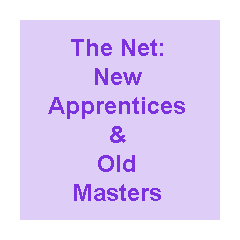 A
lot can happen in two months.
A
lot can happen in two months.
The end of August 2001 sees the appearance of Issue 18 of Mots Pluriels, the first of this double volume on the Internet. There, it becomes clear that mainstream sociopolitical approaches to the Net, often very theoretical in nature and often emanating from the United States, are increasingly reflecting great disillusionment with the object of their enquiry, and suggesting that new strategies and attitudes should be, must be, will be the order of the day. And, while far from despairing entirely, many of those who have examined the Net's effects in various global locations are heard to be expressing grave reservations regarding its potential to ameliorate the lot of the non-Western, the non-Northern, the non-privileged, and fears regarding its potential to reinforce existing inequalities and disparities. The once unified utopian image of the Internet has fragmented; the centralised discourses woven around it are unravelling.
Within a fortnight, our reflections on the Net will be thrown nauseatingly into relief by the events of September 11.
Not long after the attacks themselves, we'll be hearing that the terrorists used the Net to communicate. Some reports speak of steganography. Others suggest that crucial email messages were simply concealed within a vast flood of correspondence. Trojan horses everywhere. Potentially. Really. It appears that those who, however rightly or wrongly, see themselves as victims of globalisation, colonialism, imperialism, have used the Net to strike back at the heart of the culture from which the Net itself sprang. And we know, in the same terrible moment we know there will be war, that there will be a crisis centring on issues of communication, community and freedom. The Internet will be central to that crisis, and central to legislation crafted to deal with it.
Meanwhile, in the minutes and hours following the attacks, although jammed lines mean that it takes repeated tries to get through, people all over the world turn to the websites of the New York Times, the Washington Post, CNN, MSNBC. Thousands of emails are sent. A portion are answered. In the hours and days following the attacks, the academic and cultural e-lists go wild, information is like gold dust and then, as the dust settles, people need to know how, why, what. Practical questions turn into metaphysical ones. People disagree, acrimoniously. They agree, partially. Calmer voices suggest that while there is little consensus on the interpretation of events, there is a clearly-felt recognition that history is not dead - to the contrary of many pre-millennial claims - and an equally clearly-felt need to address the emerging issues. In the midst of the havoc, a sense of community and, not to overstate the case, of purpose, begins to materialise. In a posting to the CULTSTUD-L list three days after the attacks, Lawrence Grossberg sums up one of the more positive aspects of this process:
We can [...] be carrying on some theoretical work together around these issues and others. We can begin to share our empirical and analytic insights. But I hope that we will also recognize that if we are to approach our roles as political intellectuals responsibly, we will also have to do some serious work. When Gramsci said that the first responsibility of the political intellectual is to know more than the other side, I assume he meant that we had to do work, to do rigorous intellectual work, to produce the best knowledge we can in the service of a more humane world. [...] Cultural studies is, to my mind, a continual improvement of temporary solutions through theoretical and empirical work.
If anything could demonstrate that the Net is part of the real world, that the virtual has meaning chiefly through its relationship to the non-virtual, that the Net does have RL ramifications, then the events of September 11 have done so. Beyond the Net, there are real bodies on real streets. There will be many more real bodies on other real streets and in other real cities, in real mountains and real deserts. These are urgent matters. It doesn't mean that the Net is unimportant; the Net, variously an instrument of the terrorists, a means of rapid communication, a source of spreading (dis)information, a locus of bereaved community building, and a forum for discussion of future perspectives, options and directions, is part of this and every reality.
Nor does it mean that we should stop theorising about the Net itself, debating its potential and its uses. Indeed, it means that our talking is now more vital than ever. Cyberspace, virtual reality, netspace, call it what you will, is highly permeable to the outer world. Decisions in/on/about the Net taken today, or postponed today, will have effects tomorrow. Issues of globalisation, imperialism, accessibility, freedom and equality are much the same in cyberspace as in the so-called meatspace. Those who concern themselves with these questions in the wider world must also concern themselves with the Net. Those who would like tomorrow's world, online and offline, to be more humane than that of today must bring their influence to bear on governments, organisations and corporations - online and offline. The Net rises, flounders or falls with the values of the wider society that supports it - and which it in turn supports, challenges or undermines, as the case may be.
And thus, at the end of October 2001, as we return to some of the themes broached in our August volume on the Internet, we are doing so in a world many of whose everyday assumptions and complacencies have been unsettled. It is unsurprising, especially given this unnerved and unnerving context, if the fragmentation of unified utopian imagery and the unravelling of centralised discourses discussed in our first volume seem to represent a rather negative turn. Yet a clearer and more positive perspective may emerge if the situation is considered from the point of view of what might be termed minority discourses - ethnic, feminist, queer, spiritual - the discourses, indeed, of the very Others who were responsible for many of the earliest critiques of Net culture. It is to such discourses that we turn in this issue of Mots Pluriels.
It will be seen that there is much overlap in the concerns and approaches of many of these discourses. Maybe this is because Outsider discourses are on some level, to borrow an image from Eastern spirituality, both multiple and One. All are critiquing, now gently, now savagely, the centrist myths of the West and its instrument, the Internet. All are areas where issues pertaining to Masters and Apprentices have long been debated, and where Derridean deconstruction of such binaries has long been undertaken. These discourses, and the voices which represent them and which they represent, need, now more than ever, to be heeded, as we reflect on the numerous issues brought to the fore by the events of September 11 and subsequent weeks.
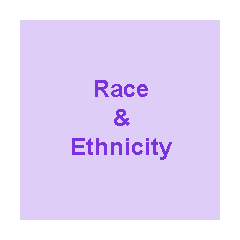 If,
in speaking of race, we employ the term Master, it suggests, no, demands
the presence of its complement, its supplement, its Other, its Slave.
Plantations and whips. Tomorrow really is another day. Or perhaps it
conjures forth a Servant as its shadowy Other. Apartheid. Or a Master
Race. And Jews ... Following on from the consideration of the Internet
around the world which concluded the last issue of Mots Pluriels,
we begin with a discussion of the interplay between race, ethnicity
and the Net.
If,
in speaking of race, we employ the term Master, it suggests, no, demands
the presence of its complement, its supplement, its Other, its Slave.
Plantations and whips. Tomorrow really is another day. Or perhaps it
conjures forth a Servant as its shadowy Other. Apartheid. Or a Master
Race. And Jews ... Following on from the consideration of the Internet
around the world which concluded the last issue of Mots Pluriels,
we begin with a discussion of the interplay between race, ethnicity
and the Net. ![]() opens with a warning against the cultural commodification of the Net,
and simultaneously against the misrepresentation and misappropriation
of identities as a subversive response to this; she indicates the need
to give more thought to ways of using the Internet as a locus of resistance,
for fostering community and reinforcing cultural origins.
opens with a warning against the cultural commodification of the Net,
and simultaneously against the misrepresentation and misappropriation
of identities as a subversive response to this; she indicates the need
to give more thought to ways of using the Internet as a locus of resistance,
for fostering community and reinforcing cultural origins. ![]() ,
in a case study of Hawaii, indicates that the multi-channel Net allows
for the coexistence of the English lingua franca with local languages
and that - contrary to fears of a creeping American monolingualism -
the Net is increasingly offering a place to local languages, and thereby
to the preservation of identity against processes of cultural homogenisation.
It is against such homogenisation that
,
in a case study of Hawaii, indicates that the multi-channel Net allows
for the coexistence of the English lingua franca with local languages
and that - contrary to fears of a creeping American monolingualism -
the Net is increasingly offering a place to local languages, and thereby
to the preservation of identity against processes of cultural homogenisation.
It is against such homogenisation that ![]() warns, in discussing the marginalisation of alterity on the Net through
an unwritten Euro-American whiteness which swamps other ethnicities,
reducing their appearance to tokenism, museology or consumable experience
- or a combination thereof. Nonetheless, echoing Hester-Williams, he
finds evidence that the Net can be a locus of resistance, and suggests
that we await the voices of the storytellers of Other cultures, ethnicities
and races.
warns, in discussing the marginalisation of alterity on the Net through
an unwritten Euro-American whiteness which swamps other ethnicities,
reducing their appearance to tokenism, museology or consumable experience
- or a combination thereof. Nonetheless, echoing Hester-Williams, he
finds evidence that the Net can be a locus of resistance, and suggests
that we await the voices of the storytellers of Other cultures, ethnicities
and races.
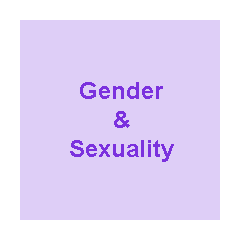 Turning to questions of gender, a Master clearly suggests Maleness,
and demands a Mistress; and before we know it, there's a whispering
of innuendo. B&D. S&M. Suddenly we find ourselves engulfed in
a dusky underworld of homo and bi and trans and
indeterminate other/Other sexualities, whose very fluidity queers the
pitch of Masterful heterosex ...
Turning to questions of gender, a Master clearly suggests Maleness,
and demands a Mistress; and before we know it, there's a whispering
of innuendo. B&D. S&M. Suddenly we find ourselves engulfed in
a dusky underworld of homo and bi and trans and
indeterminate other/Other sexualities, whose very fluidity queers the
pitch of Masterful heterosex ... ![]() argues that the Internet gives women opportunities for the sexual self-expression
so often and so long denied to them: because the Net's reproduction
of the external world's power relations is imperfect, spaces and gaps
remain and can become loci of resistance, of self-expression, which
may be partially translatable back into RL.
argues that the Internet gives women opportunities for the sexual self-expression
so often and so long denied to them: because the Net's reproduction
of the external world's power relations is imperfect, spaces and gaps
remain and can become loci of resistance, of self-expression, which
may be partially translatable back into RL. ![]() suggests that the Internet provides queers with an alternative to the
dark, shadowy venues of the past, those located far from the bright
lights of the law and social mores. Tracing the history of legal threats
to an open queer presence on the Net, however, he shows that cyberspace
is very much shaped by real-world institutions, so that if queers are
to safeguard and exploit the promises of this new arena, they must be
both informed and vigilant.
suggests that the Internet provides queers with an alternative to the
dark, shadowy venues of the past, those located far from the bright
lights of the law and social mores. Tracing the history of legal threats
to an open queer presence on the Net, however, he shows that cyberspace
is very much shaped by real-world institutions, so that if queers are
to safeguard and exploit the promises of this new arena, they must be
both informed and vigilant. ![]() demonstrates just how fluid and flexible gender and sexual identities
may be in cyberspace, but reminds us that the limited understanding
gained through gender identity tourism is no substitute for real-world
experiences in the body of another.
demonstrates just how fluid and flexible gender and sexual identities
may be in cyberspace, but reminds us that the limited understanding
gained through gender identity tourism is no substitute for real-world
experiences in the body of another. ![]() also touches on the fluidity of sexual desire, focusing on the Internet
as a space for the expression of women's interest in homosexual "boy
love" manga of a kind acceptable in Japanese popular culture,
but which, on the global Internet, run up against not only incomprehension
in the West but, more significantly, grave concerns regarding the expression
of gay sexuality, children's sexuality and the relation of both to pornography.
The extent of the Net's openness to Otherness, a topic broached in all
of the foregoing discussions, is finely pointed up by this clash of
Eastern and Western cultural perspectives.
also touches on the fluidity of sexual desire, focusing on the Internet
as a space for the expression of women's interest in homosexual "boy
love" manga of a kind acceptable in Japanese popular culture,
but which, on the global Internet, run up against not only incomprehension
in the West but, more significantly, grave concerns regarding the expression
of gay sexuality, children's sexuality and the relation of both to pornography.
The extent of the Net's openness to Otherness, a topic broached in all
of the foregoing discussions, is finely pointed up by this clash of
Eastern and Western cultural perspectives.
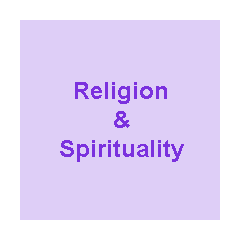 God
was - or, if you prefer, the Gods were - once Master(s) of the universe,
humanity included, a role seemingly usurped in post-Enlightenment Europe
by reason and science. And so it came to pass that (the) God(s) was/were
banished to shadowy caves by facts and figures, the latter backed up
by Nietzschean tracts and not a little help from the odd postmodernist.
And yet ... with the passing of many major postmodern thinkers, philosophers
such as, notably, Derrida and Vattimo have been paying much more serious
attention to religion, possibly the ultimate repressed Other of rational
modernity, while a fascination with global forms of spirituality is
invading contemporary Western culture. Clearly, the Western religions
have had their own centrist myths and binarisms to deal with; and even
as they continue to deal with these, they are bringing their perspectives
as Others of modernity to bear on the Net, and in so doing echoing the
concerns expressed in many minority discourses.
God
was - or, if you prefer, the Gods were - once Master(s) of the universe,
humanity included, a role seemingly usurped in post-Enlightenment Europe
by reason and science. And so it came to pass that (the) God(s) was/were
banished to shadowy caves by facts and figures, the latter backed up
by Nietzschean tracts and not a little help from the odd postmodernist.
And yet ... with the passing of many major postmodern thinkers, philosophers
such as, notably, Derrida and Vattimo have been paying much more serious
attention to religion, possibly the ultimate repressed Other of rational
modernity, while a fascination with global forms of spirituality is
invading contemporary Western culture. Clearly, the Western religions
have had their own centrist myths and binarisms to deal with; and even
as they continue to deal with these, they are bringing their perspectives
as Others of modernity to bear on the Net, and in so doing echoing the
concerns expressed in many minority discourses. ![]() warns of the danger of reducing everyone and everything to consumable
information at the expense of a traditionally Christian emphasis on
respectful embodied relationships with Others; embodied communities;
and contemplative thought leading to wisdom. With this caveat in mind,
he suggests the Churches might view cyberspace not as a replacement
for, but a supplement to, their current roles and tools. Writing from
within Judaism,
warns of the danger of reducing everyone and everything to consumable
information at the expense of a traditionally Christian emphasis on
respectful embodied relationships with Others; embodied communities;
and contemplative thought leading to wisdom. With this caveat in mind,
he suggests the Churches might view cyberspace not as a replacement
for, but a supplement to, their current roles and tools. Writing from
within Judaism, ![]() indicates that the old image of God as the Master/Shepherd no longer
seems functional, and that God might more appropriately be seen as the
Weaver of a web that binds us all together. If independence was the
catch cry of previous generations of Americans, he says, interconnectedness
must be the catch cry of this one. Examining the history of Western
conceptions of space,
indicates that the old image of God as the Master/Shepherd no longer
seems functional, and that God might more appropriately be seen as the
Weaver of a web that binds us all together. If independence was the
catch cry of previous generations of Americans, he says, interconnectedness
must be the catch cry of this one. Examining the history of Western
conceptions of space, ![]() demonstrates that the current, wide-ranging movement to spiritualise
cyberspace corresponds to a deep-seated desire to return to something
approaching the Medieval Christian dualism of body and soul, the space
of the latter having been eroded by science in the past three centuries;
and while cyberspace may not provide us with what we seek, its attempted
spiritualisation is indicative of the need to write the spirit back
into the secular and somewhat unbalanced culture of the West.
demonstrates that the current, wide-ranging movement to spiritualise
cyberspace corresponds to a deep-seated desire to return to something
approaching the Medieval Christian dualism of body and soul, the space
of the latter having been eroded by science in the past three centuries;
and while cyberspace may not provide us with what we seek, its attempted
spiritualisation is indicative of the need to write the spirit back
into the secular and somewhat unbalanced culture of the West.
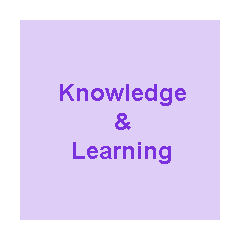 A Master needs, most obviously, Apprentices and Students. But if black
Slaves are to share with white Masters, women with men, and if God is
to Weave for us and with us rather than leading us as our Shepherd,
so too must Masters learn to share with students. This is all the more
crucial as knowledge and learning, in their abstract and practical incarnations,
are the means by which our beliefs, our understandings, our insights
will or will not be passed on to future generations, who must make of
them what they will ...
A Master needs, most obviously, Apprentices and Students. But if black
Slaves are to share with white Masters, women with men, and if God is
to Weave for us and with us rather than leading us as our Shepherd,
so too must Masters learn to share with students. This is all the more
crucial as knowledge and learning, in their abstract and practical incarnations,
are the means by which our beliefs, our understandings, our insights
will or will not be passed on to future generations, who must make of
them what they will ... ![]() brings the question of race into the academy, stressing the need for
increasing Black access to the Net, developing Black resources and information
on the Net, and thereby facilitating Black community building.
brings the question of race into the academy, stressing the need for
increasing Black access to the Net, developing Black resources and information
on the Net, and thereby facilitating Black community building. ![]() and
and ![]() bring the question of gender into the academy, indicating, like Marjorie
Kibby, that cyberspace represents for the most part an extension of
the power relations of the outer world, and that consequently women
academics find themselves limited in ways inconceivable to men; but
at the same time, and again not unlike Kibby, they suggest that women's
enhanced ability to express themselves and foster cross-connections
with other women opens up new possibilities of resistance to patriarchal
power structures. Like Charles Ess,
bring the question of gender into the academy, indicating, like Marjorie
Kibby, that cyberspace represents for the most part an extension of
the power relations of the outer world, and that consequently women
academics find themselves limited in ways inconceivable to men; but
at the same time, and again not unlike Kibby, they suggest that women's
enhanced ability to express themselves and foster cross-connections
with other women opens up new possibilities of resistance to patriarchal
power structures. Like Charles Ess, ![]() is concerned about information overload, critiquing the technoliberalist
approach which suggests that more is always better; rather, he claims,
in an essay which goes to the core of information provision in academia,
we have need of editors who, while ensuring that their methodology is
transparent, will help guide us to consensual meaning rather than abandoning
us in a wilderness of endlessly proliferating versions of texts. In
other words, the way forward means combining the insights of the past
with the possibilities of the web.
is concerned about information overload, critiquing the technoliberalist
approach which suggests that more is always better; rather, he claims,
in an essay which goes to the core of information provision in academia,
we have need of editors who, while ensuring that their methodology is
transparent, will help guide us to consensual meaning rather than abandoning
us in a wilderness of endlessly proliferating versions of texts. In
other words, the way forward means combining the insights of the past
with the possibilities of the web. ![]() and
and ![]() ,
for their part, turn to methodological questions within ethnology, as
they investigate community building in the usegroup alt.cyberpunk.
Using traditional ethnological principles and techniques as a starting
point, they find that the nature of electronic community occasions a
(re)consideration of certain assumptions and perspectives long taken
for granted, but it is nonetheless - and once again - apparent that
the way forward is through the mutually-enriching dialectical interaction
of past methodologies and present parameters, past understandings and
new insights.
,
for their part, turn to methodological questions within ethnology, as
they investigate community building in the usegroup alt.cyberpunk.
Using traditional ethnological principles and techniques as a starting
point, they find that the nature of electronic community occasions a
(re)consideration of certain assumptions and perspectives long taken
for granted, but it is nonetheless - and once again - apparent that
the way forward is through the mutually-enriching dialectical interaction
of past methodologies and present parameters, past understandings and
new insights.
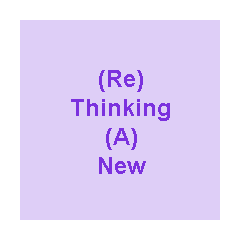 If the Old Masters, along with their faithful watchdog binarisms, are
to be ousted from their positions of entrenched power, and obliged to
co-exist and co-operate with their former Apprentices,
it also becomes clear that the Future cannot remain enthroned as sole
Master of the Past. While the pre-Enlightenment En-Slave-ment
to tradition was hardly optimal, neither is the obsequious deference
to the Present and Future into which modernism railroaded the Past.
Rather, Past and Future must exist in dialogue, though this doesn't
mean there won't be changes. We conclude with two visions of the Future
which draw varying degrees of sustenance from the Past, and its Otherness
relative to the Present ...
If the Old Masters, along with their faithful watchdog binarisms, are
to be ousted from their positions of entrenched power, and obliged to
co-exist and co-operate with their former Apprentices,
it also becomes clear that the Future cannot remain enthroned as sole
Master of the Past. While the pre-Enlightenment En-Slave-ment
to tradition was hardly optimal, neither is the obsequious deference
to the Present and Future into which modernism railroaded the Past.
Rather, Past and Future must exist in dialogue, though this doesn't
mean there won't be changes. We conclude with two visions of the Future
which draw varying degrees of sustenance from the Past, and its Otherness
relative to the Present ... ![]() 's
hypertextual piece takes us back to Pharaonic Egypt, out of which Moses
led the Hebrews to wander, with their alphabet and their God, for forty
years in the desert. We follow the rise and transformation of alphabetic
literacy as it becomes the instrument of closure and finality which
subsequently enables the realisation of the modernist world view; and
we witness its decline in our own era of post-modernism, of the
hyper-textual, inter-linked web, as we return, by error
or by imperceptible design, to the openness of the Hebrew alphabet which
Moses received from God. Yet this is but one detour, in a piece which
consists of nothing but detours, others of which take us through medicine,
neurology, psychology, literature, philosophy and art.
's
hypertextual piece takes us back to Pharaonic Egypt, out of which Moses
led the Hebrews to wander, with their alphabet and their God, for forty
years in the desert. We follow the rise and transformation of alphabetic
literacy as it becomes the instrument of closure and finality which
subsequently enables the realisation of the modernist world view; and
we witness its decline in our own era of post-modernism, of the
hyper-textual, inter-linked web, as we return, by error
or by imperceptible design, to the openness of the Hebrew alphabet which
Moses received from God. Yet this is but one detour, in a piece which
consists of nothing but detours, others of which take us through medicine,
neurology, psychology, literature, philosophy and art. ![]() reflects on the possibility of escaping 350 years of post-Cartesian
ego solitude, of reneging on 120 years of post-Wagnerian passive viewing,
through the emergence of the virtual reality avatar. This has the potential,
as yet far from realised, to halt the current tendency of the web to
render everything, humans included, as so much digitised information,
and instead to make it a locus of communication, forging much stronger
interconnections between people.
reflects on the possibility of escaping 350 years of post-Cartesian
ego solitude, of reneging on 120 years of post-Wagnerian passive viewing,
through the emergence of the virtual reality avatar. This has the potential,
as yet far from realised, to halt the current tendency of the web to
render everything, humans included, as so much digitised information,
and instead to make it a locus of communication, forging much stronger
interconnections between people.
And thus we come full circle, returning to the issues
of communication and community building with which we began. It is perhaps
fitting that the last word is left to the Francophone Canadian poet
![]() ,
whose interview with Jean-Marie Volet unfolds from a discussion of her
statement: L'Internet m'a montré
à voir large et rond, comme notre planète.
(The Internet has shown me a way of seeing that is broad and rounded,
like our planet itself.) Certainly, there's still a long way to
go before the claim to such a perspective can be shared universally,
widely or indeed any more than infrequently and somewhat provisionally.
And yet, is it not very much the kind of perspective at which many authors
have hinted, to whose possibility they have alluded, traces of which
they've found in the Net's spaces of resistance and communication?
,
whose interview with Jean-Marie Volet unfolds from a discussion of her
statement: L'Internet m'a montré
à voir large et rond, comme notre planète.
(The Internet has shown me a way of seeing that is broad and rounded,
like our planet itself.) Certainly, there's still a long way to
go before the claim to such a perspective can be shared universally,
widely or indeed any more than infrequently and somewhat provisionally.
And yet, is it not very much the kind of perspective at which many authors
have hinted, to whose possibility they have alluded, traces of which
they've found in the Net's spaces of resistance and communication?
In the editorial of the previous volume, the question was asked: are today's generally sober studies of the web the sign of a coming of age? Our answer was tentatively affirmative. But one of the important concomitants of a coming of age - if we are to have earned the right to distance ourselves from past Masters, to cast off our Apprentices' cloaks, to engage Masters in conversation as equals, to become Masters ourselves - is what Henry Handel Richardson, in a distant age, called a "getting of wisdom". Too much information, many of the authors in this volume suggest, leads to desperate limitations: a shortage of communication (Heim), meaning (Finn), wisdom (Ess). Information aplenty is available on the Net, along with considerable quantities of disinformation; but has our coming of age meant that we have gained in wisdom?
Perhaps the best we can say is that we've made a start. Our insights
need to be integrated with our actions. We need to find ways of realising
the potential of which so many authors speak, of making the Net a locus
for the expression of Otherness, for communication and community building.
We need to find a way to assemble an infrastructure where everyone can
be heard. We need to ensure that no-one feels the need to co-opt the
Net to terrorist ends. We need to avoid collapsing towers and burning
homes. We need to find ways of living together in a small world - one
that the Net makes even smaller - and we need to find ways of making
the Net an instrument in that process. We need to put a human(e) face
not only on technology - but on humanity itself. Only then will we be
sure that our "coming of age" has been equally a "getting
of wisdom".
 Mark
Pegrum is currently lecturing at Queen Margaret University
College in Edinburgh, Scotland, having previously worked at various
tertiary institutions and private colleges in Australia, England
and Finland. He has taught in the areas of German and French language,
culture and history, Cultural Studies and English as a Foreign Language.
His most recent publications include Challenging Modernity: Dada
Between Modern and Postmodern (New York: Berghahn, 2000); The
Postmodern Buddha in Culture Clash, issue 4, January
2001; and Pop Goes
(the) Spiritual in M/C, vol.4, issue 2, 2001. He has
also written numerous articles about the Internet and multimedia
technology in teaching. Mark
Pegrum is currently lecturing at Queen Margaret University
College in Edinburgh, Scotland, having previously worked at various
tertiary institutions and private colleges in Australia, England
and Finland. He has taught in the areas of German and French language,
culture and history, Cultural Studies and English as a Foreign Language.
His most recent publications include Challenging Modernity: Dada
Between Modern and Postmodern (New York: Berghahn, 2000); The
Postmodern Buddha in Culture Clash, issue 4, January
2001; and Pop Goes
(the) Spiritual in M/C, vol.4, issue 2, 2001. He has
also written numerous articles about the Internet and multimedia
technology in teaching. |
Back to [the top of the page] [the contents of this issue of MOTS PLURIELS]